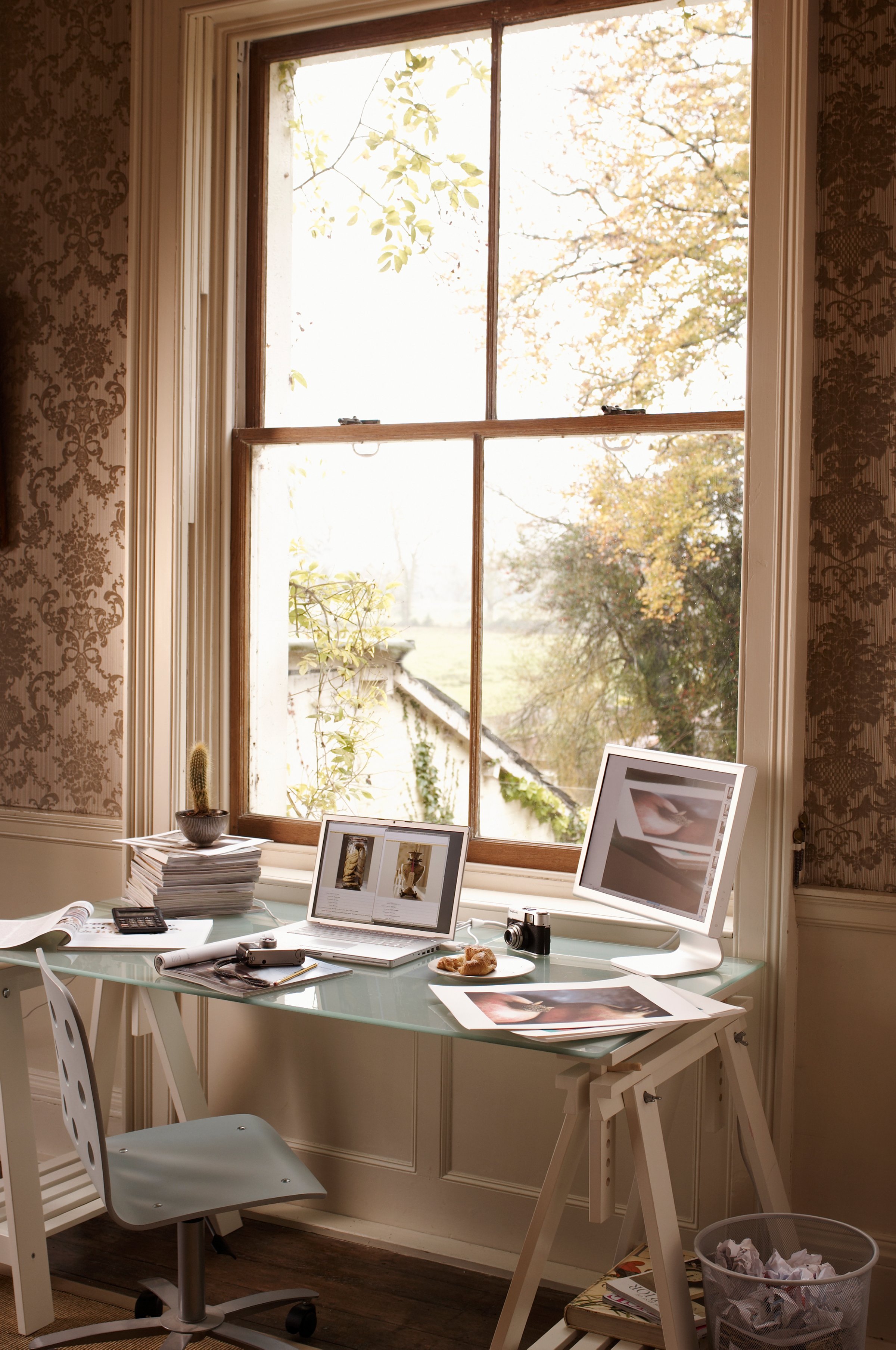
This article originally appeared on Levo.com.
More than 10 percent of U.S. employees are now regularly working at home, according to a survey by Stanford University, and that number is increasing. As someone who’s been working from home a lot lately, I (and a few experts) have come up with some tips that will help you be more productive if you find yourself working from home.
1. Get out of bed.
I know some people’s beds are literally their pride and joy, but you can’t work from bed. Well, not productively. You need a desk or a table and to be upright.
2. Get dressed.
A lot of people make the mistake of staying in their pajamas all day, and it won’t help you. Getting dressed helps you get into work mode. You don’t have to put on a pencil skirt and heels, but just a pair of jeans or workout clothes will help. If you have a video call or conference, you’d better be totally business from the waist up.
3. Stick to a schedule.
This really depends on the person’s work habits and what kind of clients they’re working with regularly. What’s important is that you get used to some kind of schedule so your body and brain can get accustomed to this schedule. If you find sleeping ’til 10 a.m and then working until 9 p.m. works better for you then go for it, but many people tend to find that the classic 9 to 5 or around then works best.
4. Tidy up.
For most, having an established and neat work area will help you be more productive. You really need to set up an office, or at least a makeshift one. “Today, telecommuting is something that enters many of our work worlds, [so] we should all create spaces at home that are conducive to working there,” says Heath Boice-Pardee, EdD, associate faculty member at the University of Phoenix School of Advanced Studies and community manager of the PhoenixConnect® academic social network.
And if you have a Skype call, be sure that your background is presentable. Levo writer Katrina Taylor wrote, “Take a few minutes to de-clutter your surroundings and remove any potentially embarrassing items. Translation? Forgetting to relocate the naked mannequin torso that lives behind your office chair won’t win you any brownie points. (Fortunately, my co-workers have a sense of humor.)”
(MORE: 5 Ways to Make Your Commute More Productive)
5. Communicate clearly.
Sometimes when you’re home, you fall into home mode. This may translate into your emails not being as clear. Because you’re not with people in the office, you’re already automatically at a disadvantage. Be articulate and clear in all communication and make sure it’s well thought out.
6. Don’t multitask your breaks.
Just because you think you can catch up on Orange is the New Black while you write invoices doesn’t mean you actually can or that it’ll help you. Take a real break and watch TV or go on a walk. Don’t mix work with a leisure activity. Set clear boundaries.
7. Try to talk with at least one human being every day.
Even though you may have hated all your co-workers and boss and are thrilled to not be in an office with them anymore, you’ll start to crave interaction. Humans are social by nature. Instead of just writing long emails, ask to have a phone call or even meet in person.
8. Go to a coffice.
Working from home doesn’t mean you actually have to work from home. Some people just need to get out of the house every day. They need the ambient noise of a coffee shop along with just seeing other people around. Writer Malcolm Gladwell has a perfectly lovely office at The New Yorker, but he prefers a coffee shop. In his acknowledgments in Blink, he thanked the staff of Savoy in SoHo where he wrote a big portion of his book. “They have these huge windows and they open them out so that people on the street are walking right by you. You feel the traffic; you feel in the middle of things and paradoxically I find it very calming.”
(MORE: 4 Productive Habits That Will Build Your Personal Brand)
5 Horrible Habits You Need to Stop Right Now





More Must-Reads from TIME
- Why Trump’s Message Worked on Latino Men
- What Trump’s Win Could Mean for Housing
- The 100 Must-Read Books of 2024
- Sleep Doctors Share the 1 Tip That’s Changed Their Lives
- Column: Let’s Bring Back Romance
- What It’s Like to Have Long COVID As a Kid
- FX’s Say Nothing Is the Must-Watch Political Thriller of 2024
- Merle Bombardieri Is Helping People Make the Baby Decision
Contact us at letters@time.com